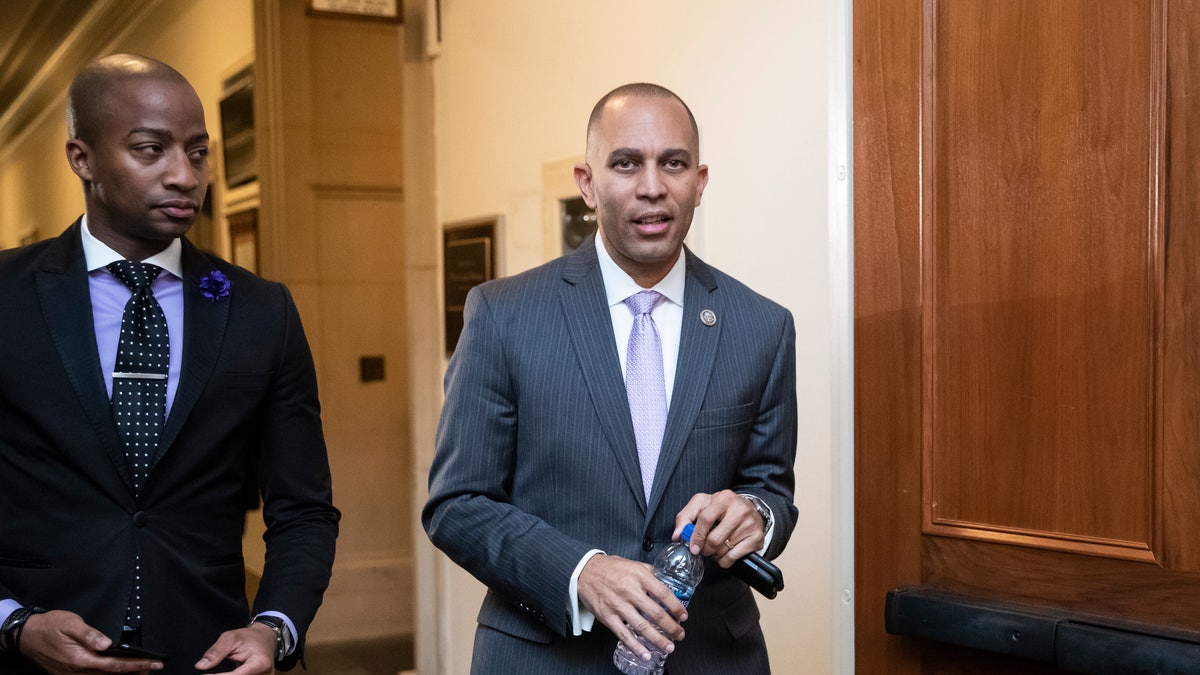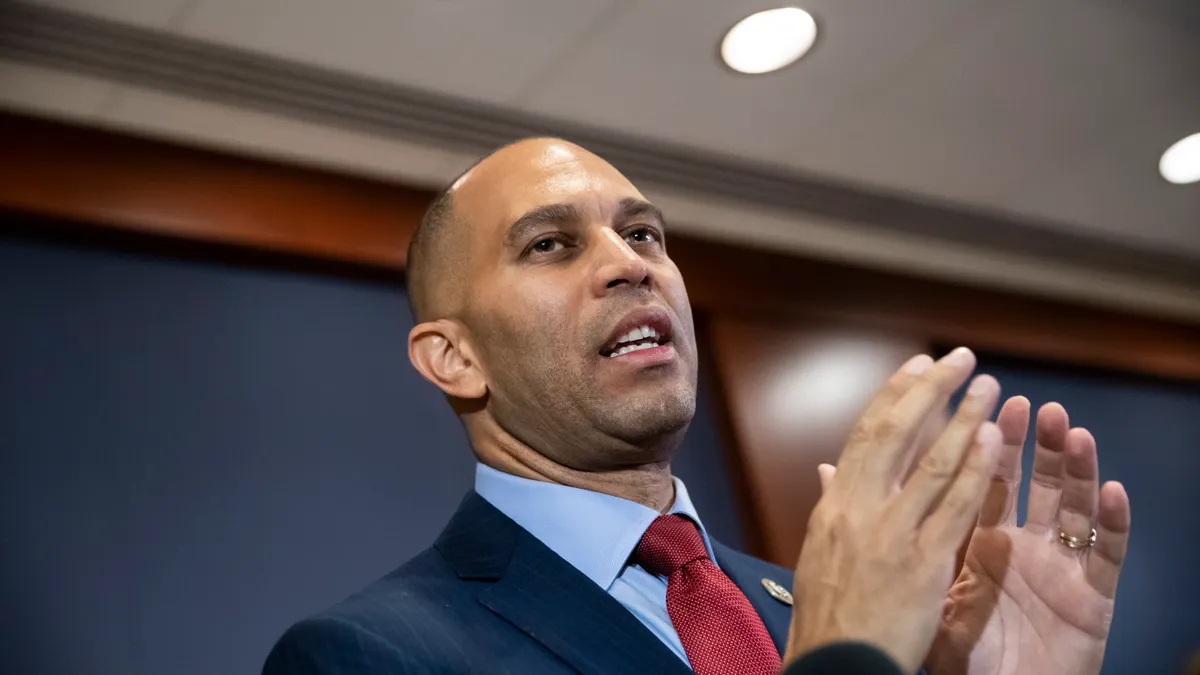
Rep. Hakeem Jeffries, D-N.Y., is the next chairman of the House Democratic Caucus. (AP Photo/J. Scott Applewhite)
A prominent member of the Congressional Black Caucus, Rep. Hakeem Jeffries has been elected chairman of the House Democratic Caucus for the 116th Congress.
Jeffries, a 48-year-old Democrat from New York, beat California Rep. Barbara Lee for the leadership post. He represents New York’s 8th congressional district, which encompasses parts of Brooklyn and Queens.
Read on for three things to know about Jeffries.
He was already part of the Democratic leadership team
In Congress, Jeffries created the Criminal Justice & Public Safety Caucus and has been co-chair of the House Democratic Policy & Communications Committee since 2016, according to his House biography.
He is also the former whip for the Congressional Black Caucus.
Jeffries was lauded as “one of the rising stars of the Democratic Party” by Sen. Chuck Schumer, D-N.Y., earlier this year. He’s also been floated as a potential future House speaker.
He told The New York Times he sees himself as a “pragmatic progressive who can work with all of the ideological wings,” meaning he doesn’t mind breaking from “Democratic orthodoxy” if he believes it's best for his constituents.
He was first elected to Congress in 2012.
He’s a former lawyer

Rep. Hakeem Jeffries, D-N.Y., is a former lawyer and state Assemblyman from New York. (AP Photo/J. Scott Applewhite)
Jeffries practiced law at Paul, Weiss, Rifkind, Wharton & Garrison LLP, an international firm, for several years, according to his House biography. He later worked as counsel for Viacom Inc., CBS and litigation firm Godosky & Gentile.
He also clerked for former Judge Harold Baer Jr. of the U.S. District Court for the Southern District of New York.
Jeffries earned a degree in political science from the State University of New York at Binghamton and later received a master’s degree in public policy from Georgetown University. He graduated from the New York University School of Law as well.
He served in the New York Assembly
Before being elected to Congress, Jeffries served in the New York state Assembly from 2007 to 2012.
In the Assembly, Jeffries sponsored a bill signed into law by the governor that blocked police from electronically storing data on people who were stopped by officials but were cleared of wrongdoing.
A 2011 profile in The Observer dubbed him “the Barack of Brooklyn,” an homage to former President Obama.
His path to the state Assembly wasn’t easy. He initially and unsuccessfully challenged longtime Democratic Assemblyman Roger Green in 2000. And after councilman James Davis was fatally gunned down in City Hall in 2003, his name was floated as a potential replacement, though he ultimately decided not to run.












































